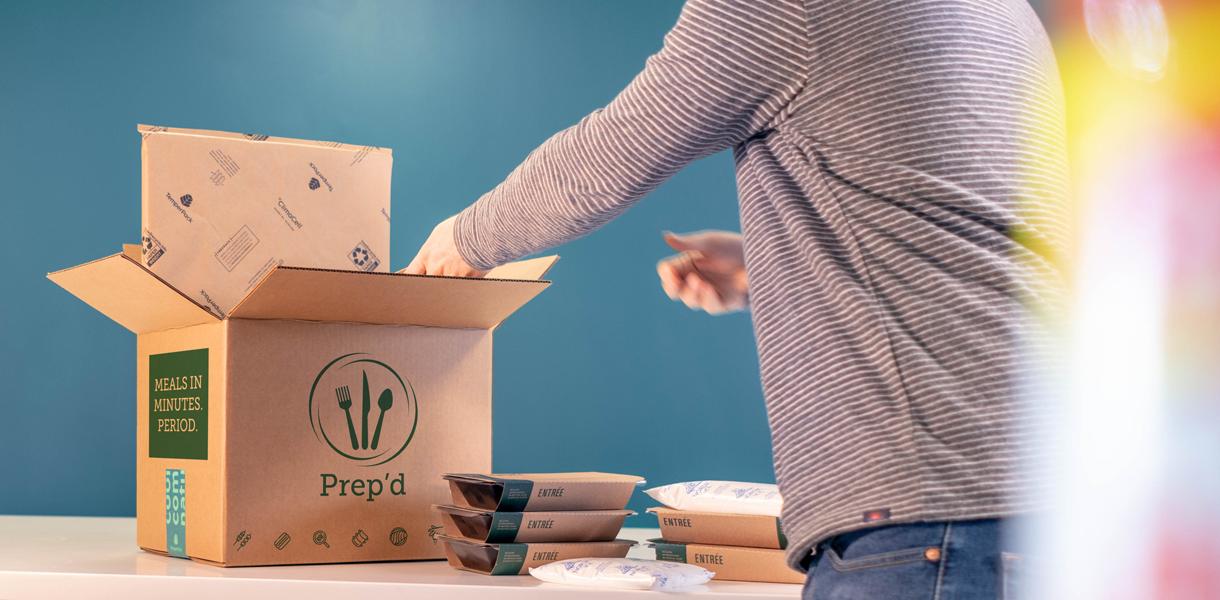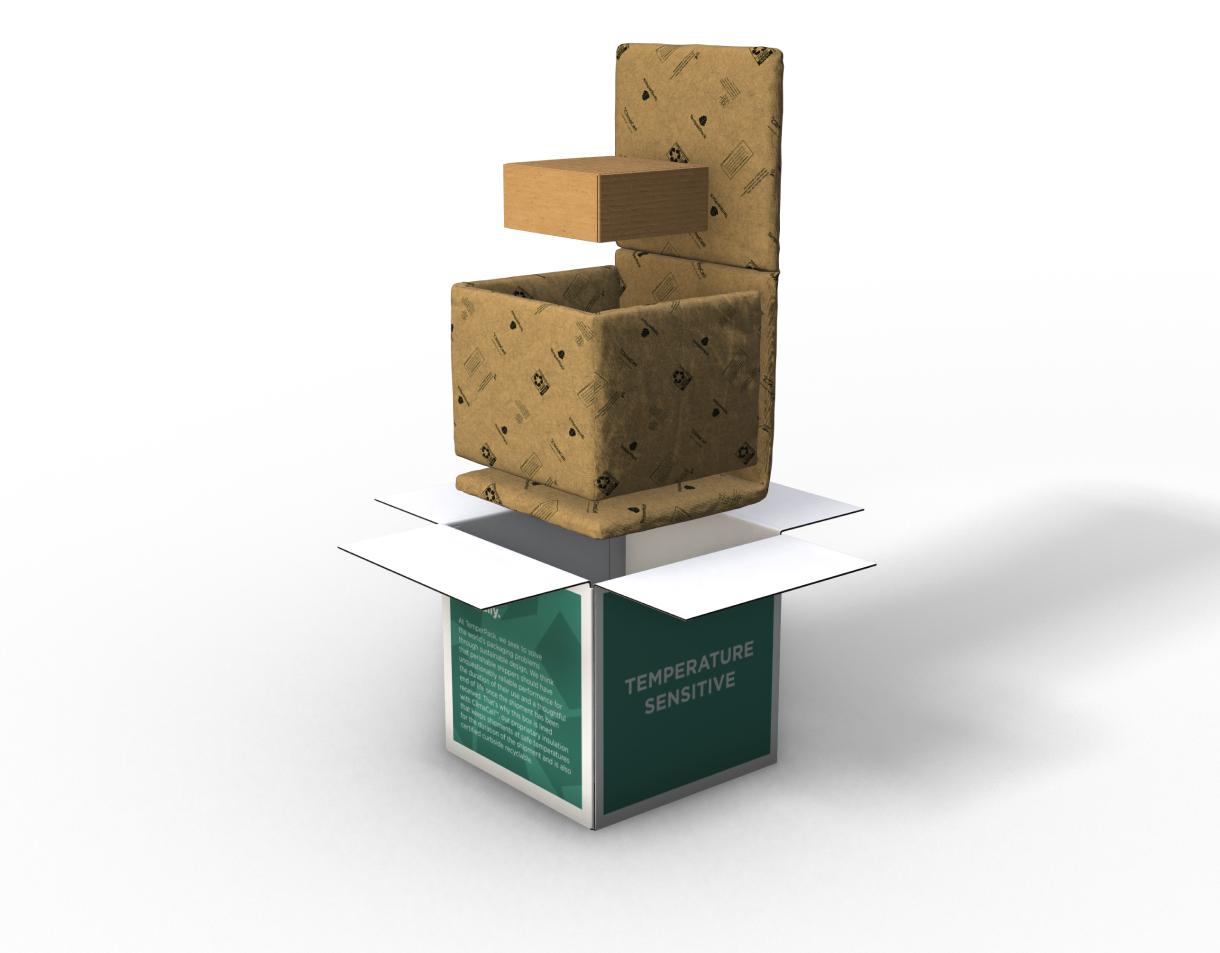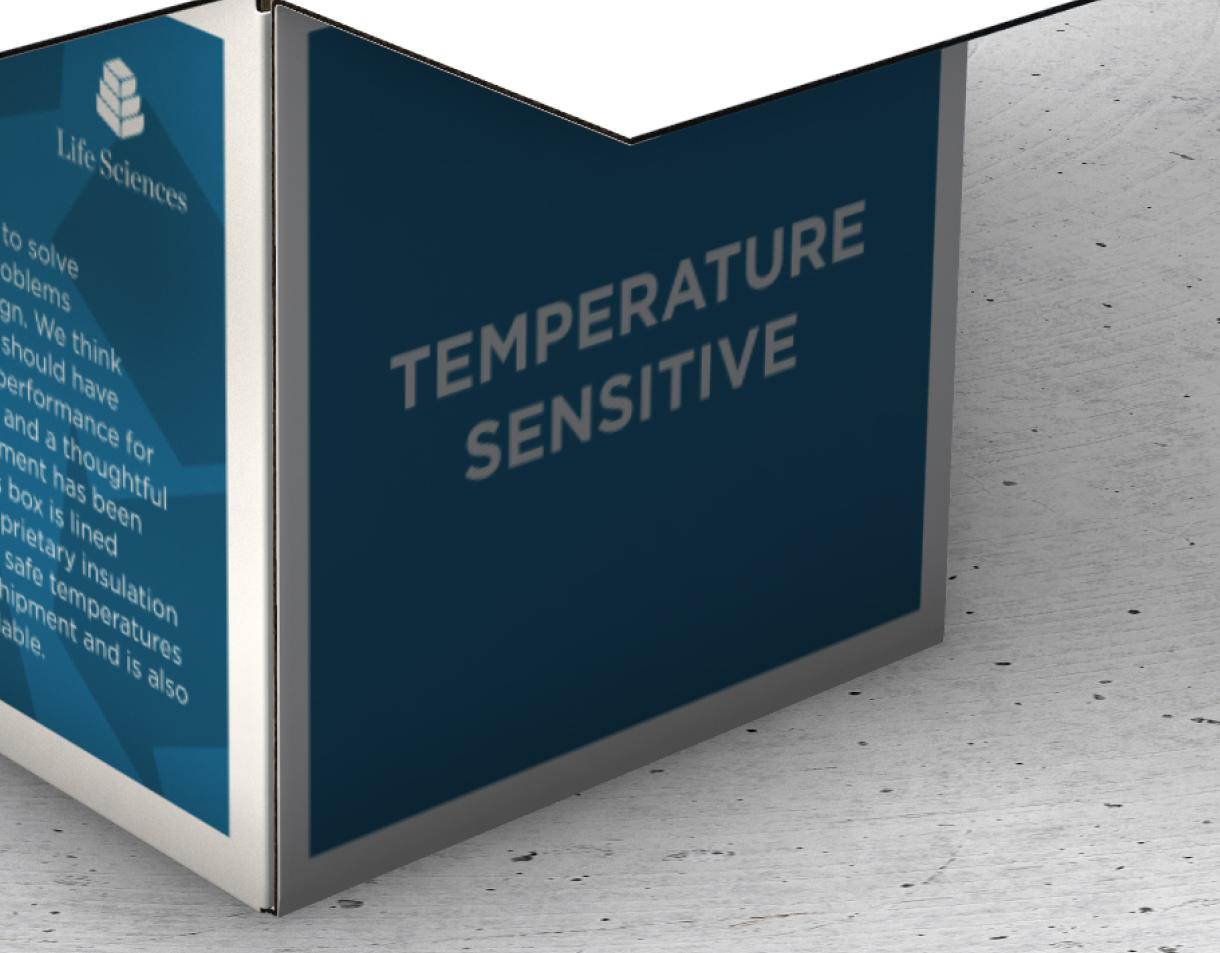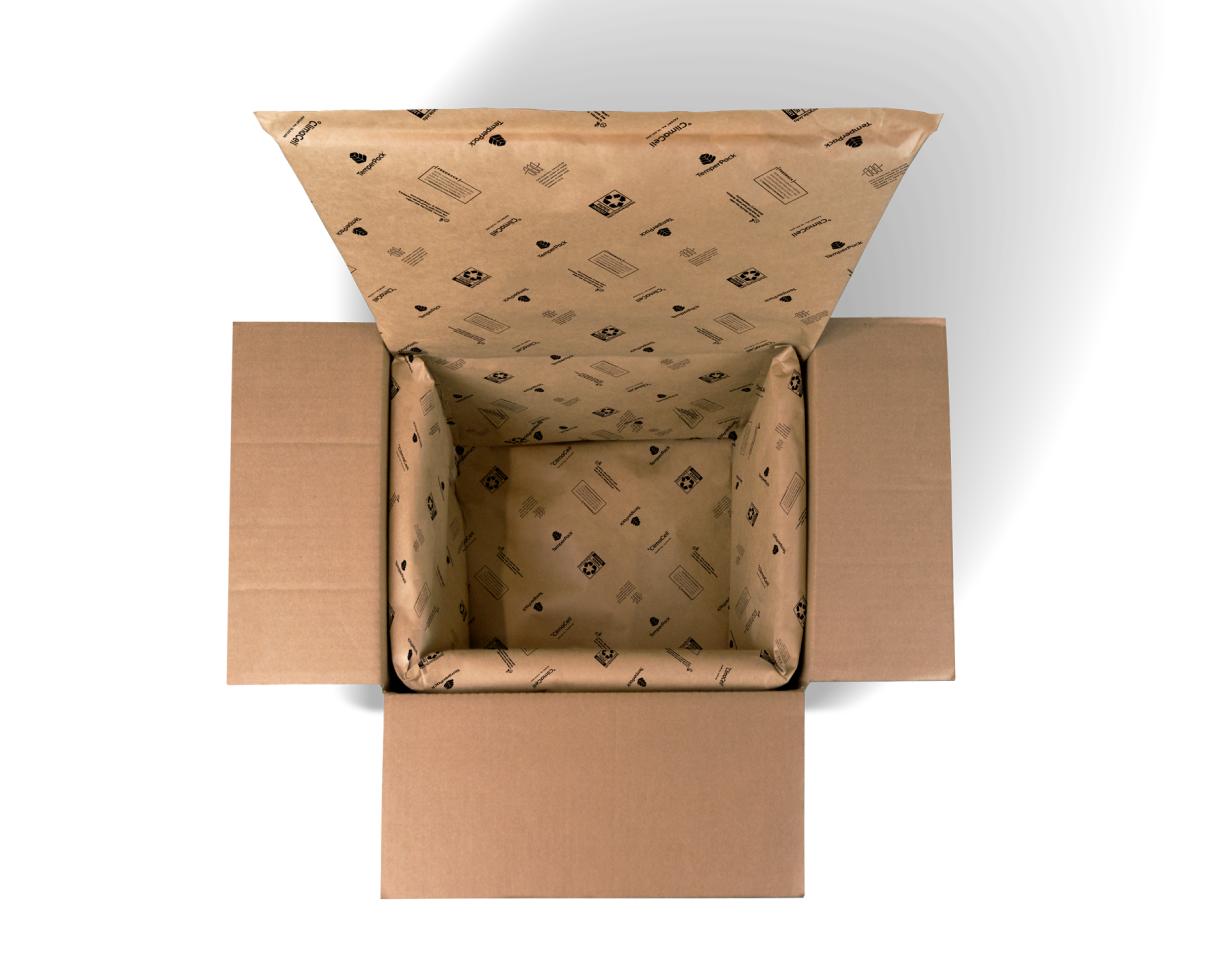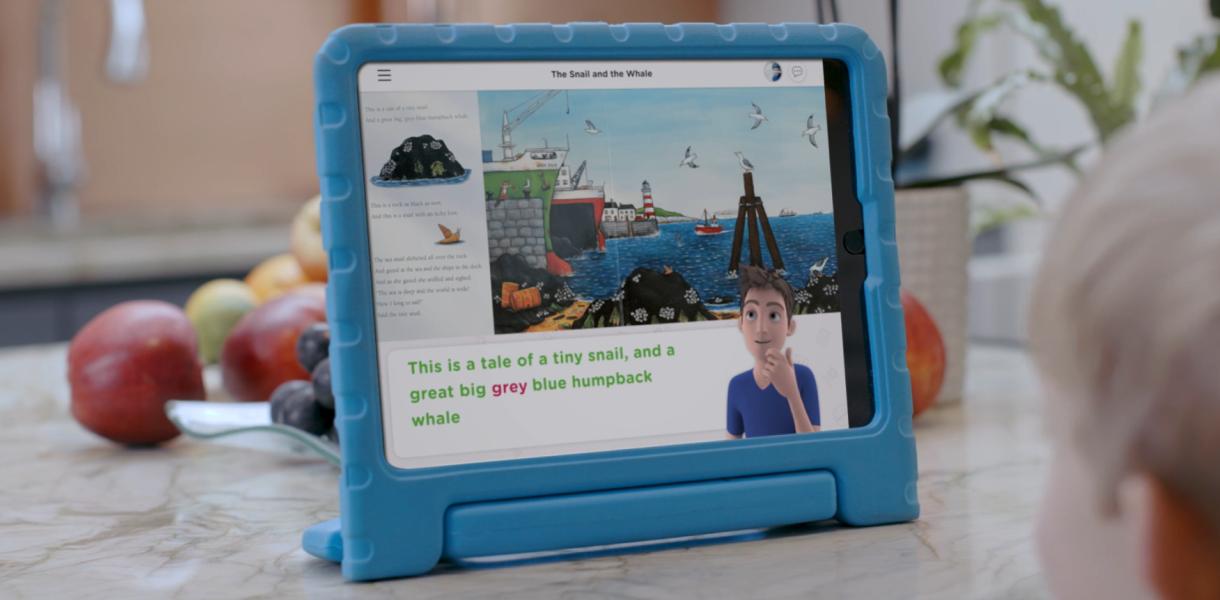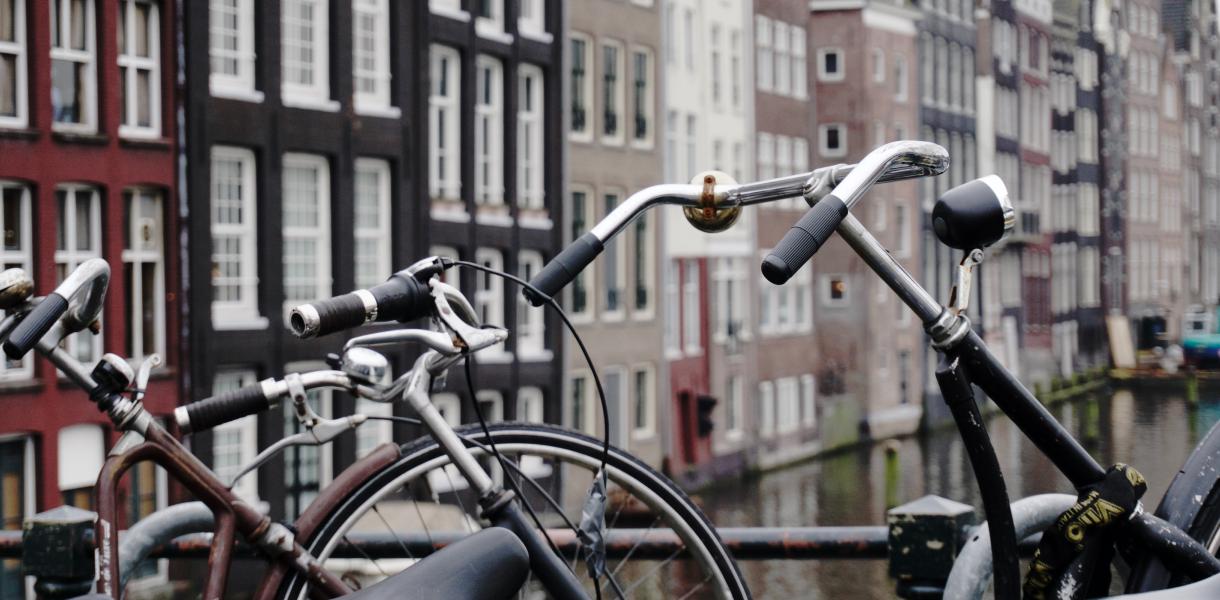What’s the design in a nutshell?
An eco-friendly cooler solution that protects perishable, essential goods without unnecessary plastic waste.
Why is it needed?
Maintaining frozen or refrigerated temperatures in e-commerce shipments requires good insulation and, right now, the go-to material is Expanded Polystyrene (EPS) or often known as Styrofoam®. EPS can take more than 500 years to break down in landfills, and according to various studies led is potentially carcinogenic.
It’s estimated that over 90 million EPS foam coolers are used every year by food and life science companies for our online deliveries. They’ve been a necessary evil keeping everything from pre-cooked meals to insulin kits cool on the way to our homes.
How does it work?
ClimaCell thermal liners offer an alternative: insulation made with paper and corn starch that provides high thermal performance and curbside recyclability. Unlike a moulded cooler, ClimaCell is manufactured in flat panels, making them more efficient for freight and storage. Two panels line the interior walls of a cardboard shipping box to create a protected zone for fresh or frozen goods. Just as with EPS, gel packs or dry ice are used as active coolants to reduce the temperature inside the box.
"The ClimaCell product launched in 2018 and has since been used to protect over 40 million shipments."
How does it improve life?
ClimaCell is a material that people can easily recycle from home, is easy for a Materials Recovery Facility to sort and bale correctly, and is useful in the making of new paper. While recycling standards vary from facility to facility, ClimaCell designers worked with industry leaders to verify the recyclability of liners.
Switching from EPS to ClimaCell helps reduce the plastic going to landfills, the greenhouse gas emissions associated with manufacturing Styrofoam, and the release of potentially harmful chemicals into the environment.
What’s the impact to date?
The ClimaCell product launched in 2018 and has since been used to protect over 40 million shipments by leading US companies such as HelloFresh and UPS Healthcare. And with the stay at home orders through 2020, perishable e-commerce rose significantly. Based on the shipments in 2020, ClimaCell saved over 90 Olympic swimming pools worth of plastic from entering landfills by their customers choosing ClimaCell instead of EPS.
In addition to recyclability, switching to ClimaCell from EPS also makes a big impact on greenhouse gas emissions. Based on initial calculations by the company, they estimate that using ClimaCell instead of EPS reduces CO2 equivalent emissions by an average of 60-65%. They estimate, that their customers helped avoid the creation of over 58 million pounds of CO2 equivalent emissions. According to TemperPack, that’s the same effect as planting 120,000 trees and letting them grow for 10 years.
